Understanding What Makes a Cat Ideal for You
Choosing the right cat for your household is an important decision that can lead to years of companionship and happiness. Not all cats are the same, and what works for one family may not suit another. By considering key factors, you can find the perfect feline friend that matches your lifestyle. What Is the Best Cat to Have as a Pet?
Factors to Consider When Choosing a Cat
- Lifestyle compatibility: Consider whether you have the time and energy to care for an active or low-maintenance cat.
- Family setup: Families with children or other pets might want to prioritize breeds known for their patience and sociability.
- Living environment: Cats living in apartments often require less outdoor access, while those in houses with yards may enjoy some outdoor exploration.
According to the American Humane Society, understanding the individual traits of each breed can help you make an informed choice. For example, some cats are more independent, while others demand more attention. This resource can be a great starting point for further research.
The Importance of Temperament
The temperament of a cat plays a vital role in determining if it will suit your household. For instance:
- Active breeds, like the Abyssinian, are ideal for those who enjoy interactive play sessions.
- Calmer breeds, such as the British Shorthair, might be better for families looking for a more relaxed companion.
Looking for more tips on how cats interact with their environment? Check out how cats recognize their names for fascinating insights on cat behavior.
Additionally, the Petfinder guide to adoptable cats provides valuable advice on selecting a cat that aligns with your needs and lifestyle.
Additional Tips
- Visit shelters and interact with multiple cats to understand their behavior.
- Read breed profiles to understand care needs and typical temperaments.
- Consult a veterinarian for advice on what type of cat might best fit your situation.
For even more insights, don’t miss interpreting cat behavior, which highlights how different cats express their personalities and preferences.
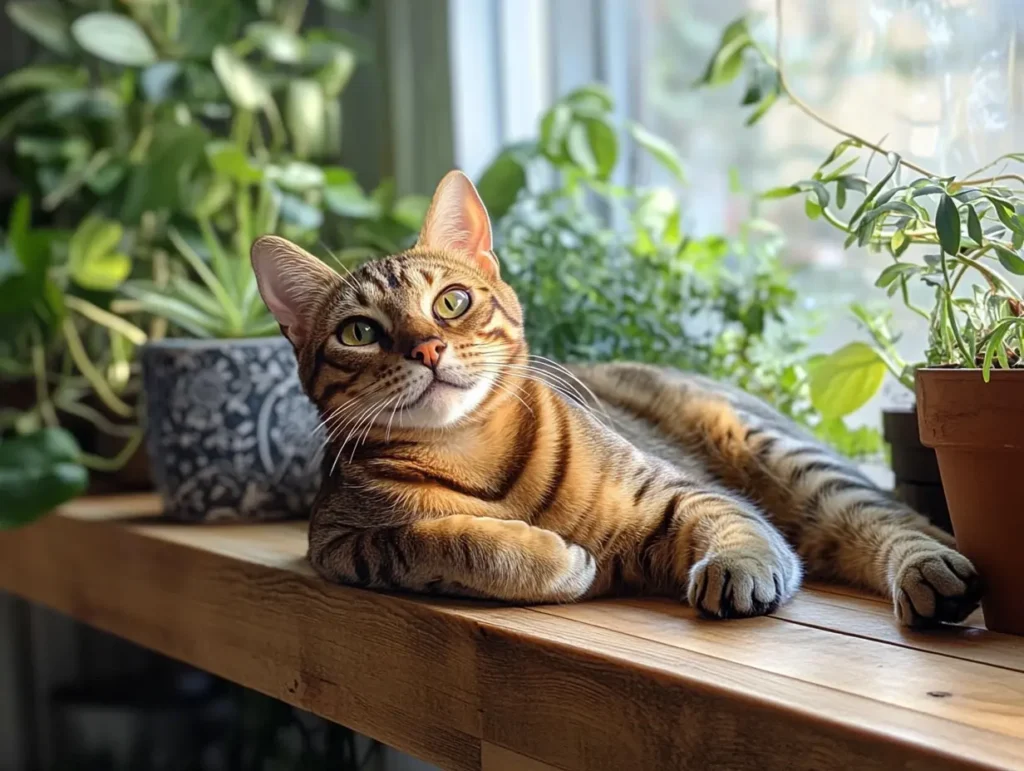
Popular Cat Breeds and Their Unique Traits
When deciding on the ideal cat breed for your household, it’s important to consider their unique traits and how these align with your needs. Some breeds are well-known for being independent, while others thrive on attention and interaction. Below, we break down a variety of cat breeds to help you make an informed choice.
Low-Maintenance Cats
- British Shorthair: Known for their calm and relaxed demeanor, these cats require minimal grooming and are great for busy owners.
- Russian Blue: With a quiet personality and a thick coat that doesn’t shed much, this breed is ideal for those looking for a tidy companion.
For more insights into low-maintenance breeds, check out ASPCA’s guide to cat care, which offers practical tips for owners.
Best Cats for Families with Children
- Ragdoll: Known for their affectionate nature and tolerance for handling, Ragdolls are perfect for families with kids.
- Maine Coon: These gentle giants are sociable, friendly, and adapt well to a lively household environment.
Looking for more ideas? Discover how certain breeds interact with kids and families in this guide to adopting pets responsibly.
Hypoallergenic Breeds for Allergy Sufferers
- Siberian: Known for producing lower levels of the allergenic protein Fel d 1, they’re often suitable for allergy sufferers.
- Balinese: These elegant cats combine beauty and lower allergen levels, making them a great choice for sensitive owners.
Find out more about hypoallergenic breeds and how they might fit your lifestyle by exploring the most hypoallergenic cats and their unique traits.
Active and Playful Breeds
- Bengal: With their striking leopard-like coat and high energy, Bengals are perfect for interactive play.
- Abyssinian: These curious and agile cats love climbing and engaging in mental stimulation games.
For more tips on keeping active breeds happy, don’t miss this ultimate pet care guide that offers useful advice for maintaining their health and happiness.
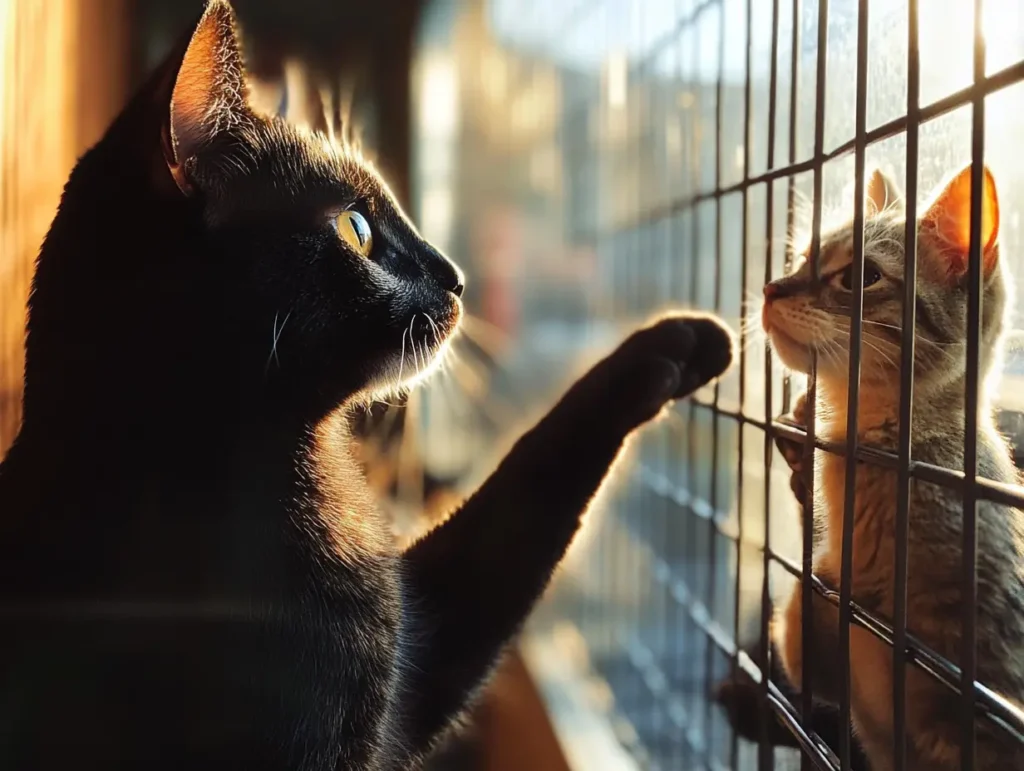
Adopting vs. Buying a Cat
When it comes to getting a new cat, one of the first decisions you’ll face is whether to adopt or buy. Both options have their benefits, and understanding them can help you make the best choice for your circumstances.
Why Adoption Is a Great Option
- Save a life: Many cats in shelters are looking for loving homes. Adopting gives them a second chance at happiness.
- Lower cost: Adoption fees often include initial vaccinations, spaying/neutering, and sometimes even microchipping.
- Variety: Shelters have cats of all ages, breeds, and temperaments, making it easier to find the perfect match.
Adopting a cat not only helps reduce the number of animals in shelters but also provides an opportunity to give a loving home to a pet that truly needs one.
Buying from Reputable Breeders
- Health guarantees: Reputable breeders often provide detailed health records and genetic history.
- Specific traits: If you’re looking for particular physical characteristics or behaviors, breeders can help meet those needs.
- Early socialization: Cats from breeders are often well-socialized from a young age, making them easier to integrate into your home.
When buying, always research the breeder carefully to ensure ethical practices. Avoid any breeder that cannot provide proper documentation or allows unhealthy breeding conditions.
Which Option is Best for You?
- Consider your budget, as buying from breeders can be more expensive than adoption.
- Think about your preferences—whether you want a specific breed or are open to mixed-breed cats.
- Evaluate the time and effort you can dedicate to acclimating a new cat to your household.
Both adoption and buying can lead to a rewarding pet ownership experience. The key is choosing the option that aligns with your needs and values.
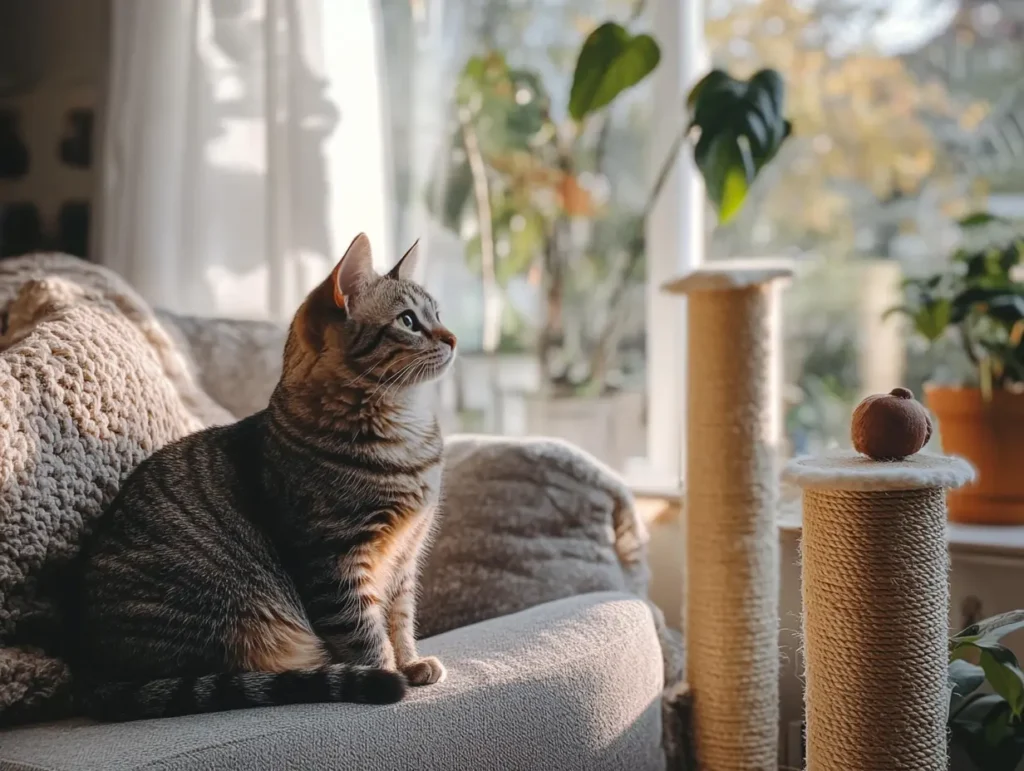
Tips for a Smooth Transition to Pet Ownership
Bringing a new cat into your home can be an exciting and rewarding experience. With the right preparations, you can create a comfortable and safe environment for your new feline companion. Below are some tips to help you and your cat settle in quickly.
Preparing Your Home for a Cat
- Essential supplies: Make sure you have a litter box, scratching post, food and water bowls, and cozy bedding ready before your cat arrives.
- Create a safe space: Set up a quiet, enclosed area where your cat can acclimate to their new surroundings.
- Secure potential hazards: Remove toxic plants, secure electrical cords, and keep small items out of reach.
Taking these steps will help your cat feel at ease as they adjust to their new home.
Building a Strong Bond with Your Cat
- Patience is key: Allow your cat to approach you on their own terms, especially in the first few days.
- Establish a routine: Feed your cat at the same times each day and set a schedule for play and rest.
- Use interactive toys: Activities like feather wands and laser pointers can strengthen your bond while providing mental stimulation.
Consistency and care will encourage your cat to trust you and feel secure in their new home.
Health and Wellness Basics
- Schedule a vet visit: A health checkup ensures your cat is up-to-date on vaccinations and screenings.
- Provide a balanced diet: Choose high-quality cat food appropriate for your cat’s age, breed, and health needs.
- Encourage exercise: Regular play sessions help maintain a healthy weight and keep your cat active.
These steps will help establish a healthy foundation for your cat’s well-being.
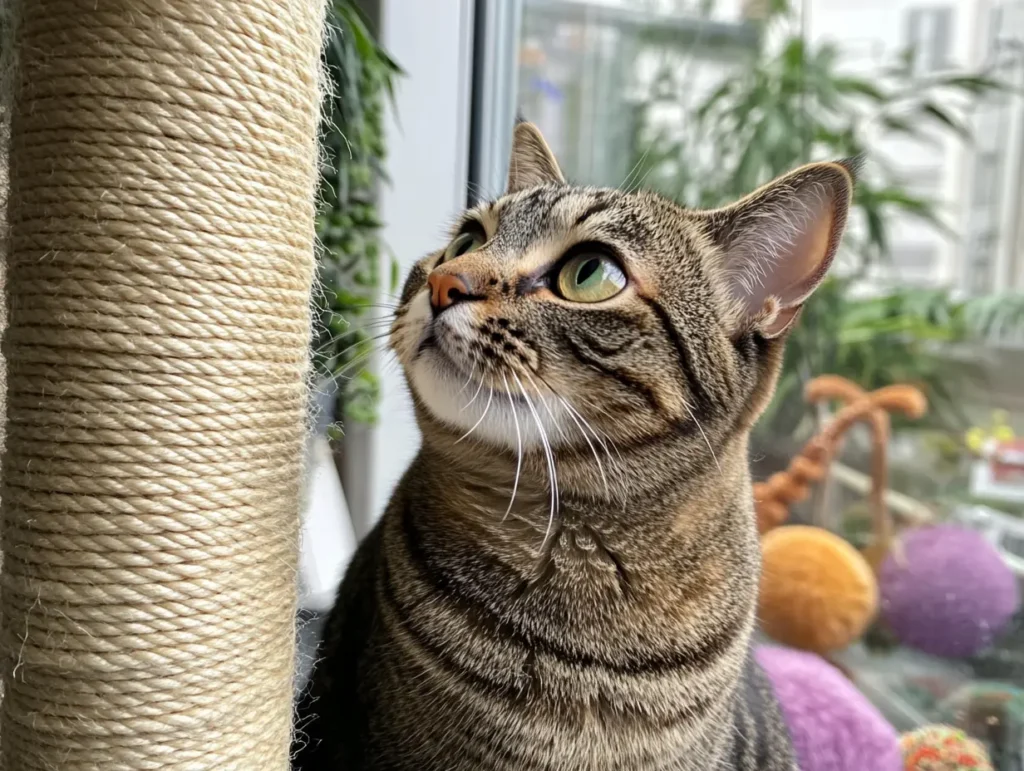
Common Questions About Owning a Cat
Bringing a cat into your home can raise many questions, especially if you’re a first-time pet owner. Here are answers to some of the most common inquiries to help you feel more prepared for the journey ahead.
What Are the Friendliest Cat Breeds?
- Ragdolls: Known for their calm and affectionate nature, they enjoy being held and cuddled.
- Maine Coons: Sociable and gentle, they are often referred to as “gentle giants.”
These breeds are ideal for those seeking a loving and interactive pet.
Which Cats Are Best for First-Time Owners?
- British Shorthair: Low-maintenance and adaptable, they are perfect for beginners.
- Siamese: Known for their affectionate and vocal personalities, they form strong bonds with their owners.
First-time owners often benefit from choosing cats that are easygoing and adaptable to different environments.
What Should I Know About Cat Lifespan?
- Most domestic cats live between 12 to 15 years, but some can live longer with proper care.
- Providing a healthy diet, regular vet checkups, and a safe environment can extend their lifespan.
Knowing the commitment involved will help you plan for your cat’s long-term care.
Are Indoor Cats Happier Than Outdoor Cats?
- Indoor cats are safer from dangers such as predators, traffic, and disease.
- Providing engaging toys, scratching posts, and window perches can keep indoor cats content and stimulated.
Creating a rich and interactive environment at home allows cats to thrive without outdoor risks.
How Much Does It Cost to Own a Cat?
- Initial expenses include adoption fees, vaccinations, and basic supplies like a litter box and scratching post.
- Ongoing costs include food, litter, annual vet visits, and occasional grooming.
Budgeting for both one-time and recurring expenses ensures you can meet your cat’s needs comfortably.
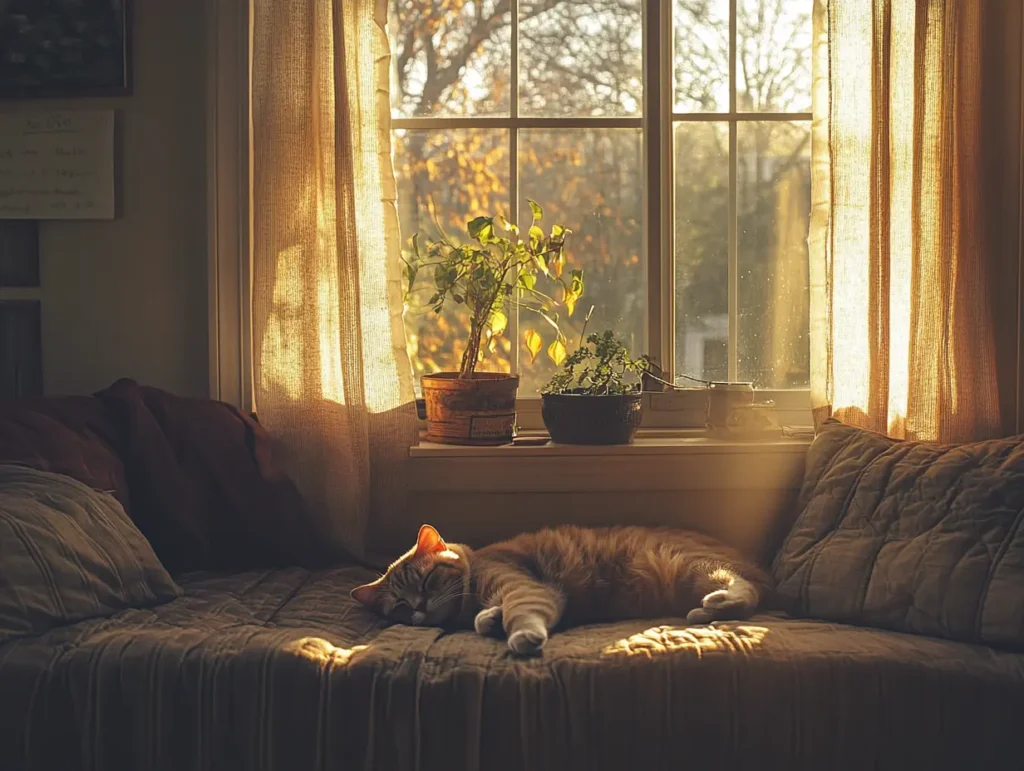
Conclusion and Final Thoughts
Choosing the perfect cat as a pet is a decision that depends on your lifestyle, preferences, and environment. Each cat has its own unique personality, and finding the right match can lead to a fulfilling and lifelong bond.
Key Takeaways
- Consider your living space, daily routine, and family dynamics when selecting a cat.
- Learn about different breeds and their traits to find one that aligns with your needs.
- Whether adopting or buying, prioritize the well-being of the cat and ensure it comes from a responsible source.
- Prepare your home with all necessary supplies to make the transition smooth for both you and your pet.
- Invest time in building trust and providing a nurturing environment for your cat to thrive.
Remember, owning a cat is not just about providing a home but also about creating a safe and loving environment where they can live happily and healthily.
By taking the time to consider these aspects, you can make a decision that benefits both you and your feline companion, setting the foundation for a wonderful relationship that lasts for years.

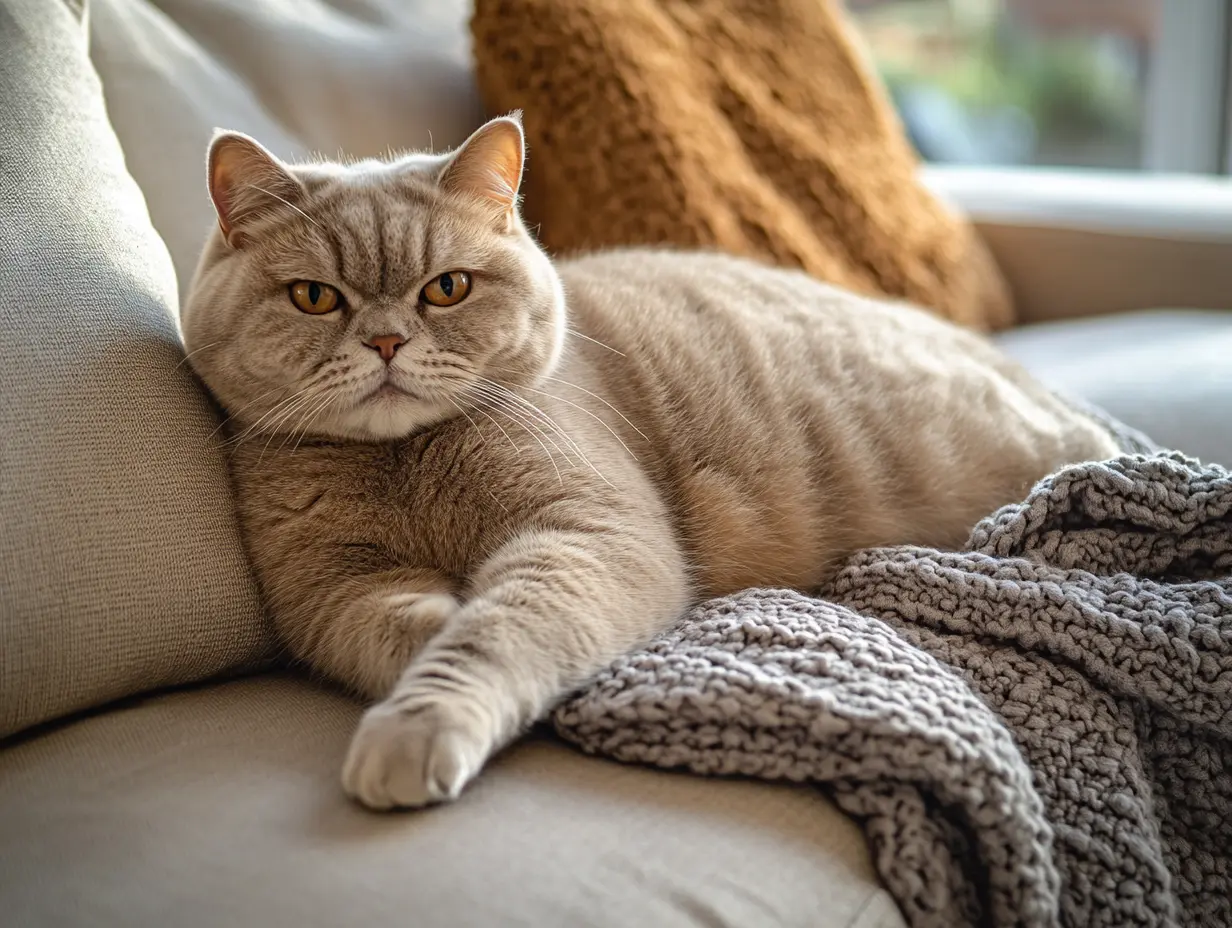





1 thought on “What Is the Best Cat to Have as a Pet?”